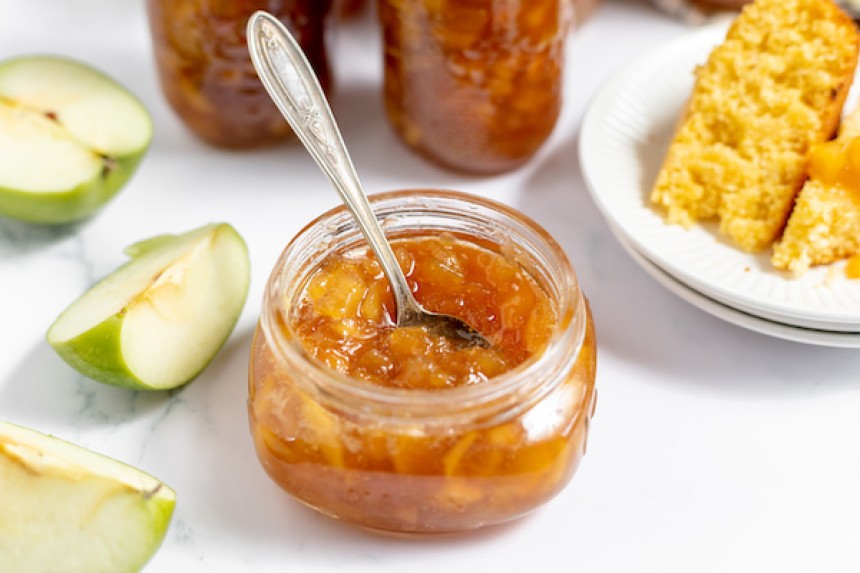
Exploring the Sweet World of Apple Jam: From Creation to Culinary Delights
Apple jam is a type of fruit preserve or spread made from apples, sugar, and often flavored with additional ingredients such as spices, lemon juice, or pectin. It is a popular condiment that can be enjoyed on its own or used as an ingredient in various culinary applications. Apple jam offers a sweet and tangy flavor profile and can vary in texture from chunky to smooth, depending on personal preference and the cooking process.
Ingredients and Making Process:
The basic ingredients required for making apple jam include:
- Apples: Choose ripe and flavorful apples for the best results. Varieties like Granny Smith, Fuji, or Gala are commonly used.
- Sugar: Sugar is used to sweeten the jam and help preserve it. The amount of sugar used can vary based on the recipe and personal taste preferences.
- Lemon Juice: Lemon juice is often added to provide acidity, enhance flavor, and help with the gelling process. The natural pectin in apples needs some acidity to set properly.
- Optional Ingredients: Depending on the desired flavor profile, additional ingredients like cinnamon, nutmeg, cloves, or even other fruits can be added to enhance the taste.
The basic steps to make apple jam are as follows:
- Preparation: Wash, peel, and core the apples. Cut them into small pieces.
- Cooking: In a large pot, combine the chopped apples, sugar, and lemon juice. Cook over medium heat, stirring regularly to prevent sticking and burning. As the apples soften, they release their juices and combine with the sugar to create a syrupy consistency.
- Flavoring: If desired, add spices or other flavorings during the cooking process.
- Pectin Addition: If your apples don't naturally contain enough pectin (a natural thickening agent found in fruits), you might need to add commercial pectin according to the instructions on the packaging.
- Testing for Doneness: To determine if the jam is ready, you can perform the "plate test." Place a small amount of the jam on a chilled plate. If it forms a skin and wrinkles when pushed with a finger, it's ready.
- Jarring: Once the desired consistency is reached, pour the hot jam into sterilized jars, leaving some headspace at the top. Seal the jars with lids and process them in a water bath or store in the refrigerator, depending on the type of preservation you're aiming for.
Uses and Benefits:
- Spread: The most common use of apple jam is as a spread for toast, English muffins, bagels, and other baked goods. It adds a burst of fruity flavor to breakfast or snacks.
- Baking: Apple jam can be used as a filling for pastries, cakes, and tarts. It can add moisture, flavor, and sweetness to baked goods.
- Condiment: It can serve as a condiment for cheeses, especially strong-flavored cheeses like cheddar or brie.
- Glazes and Sauces: Apple jam can be used as a glaze for meats, such as roasted pork or chicken. It can also be turned into a sauce by mixing it with other ingredients like vinegar or mustard.
- Gifts: Homemade apple jam can make for thoughtful and delicious gifts during the holiday season or special occasions.
- Preservation: Making apple jam allows you to preserve the flavors of fresh apples for longer periods, especially if you're using the water bath canning method.
Nutritional Value:
Apple jam, like other fruit preserves, is a source of calories primarily from sugar. While it contains some vitamins and fiber from the apples, the nutritional value can vary based on the recipe and the amount of sugar used. It's best enjoyed in moderation as part of a balanced diet.
In summary, apple jam is a versatile and flavorful condiment that can be enjoyed in various ways. It provides a way to savor the flavors of apples beyond their fresh season and can be a creative addition to your culinary repertoire. Homemade apple jam allows for customization and control over ingredients, making it a popular choice for those who enjoy DIY cooking and preserving.




